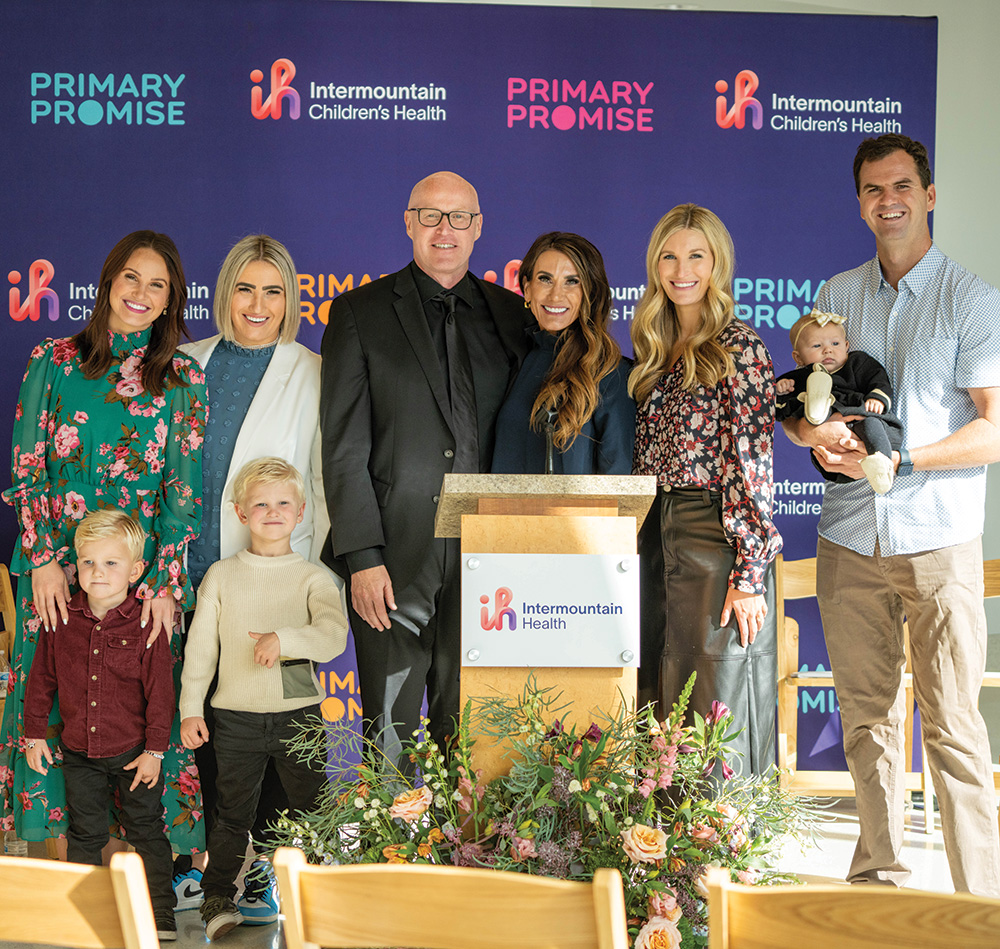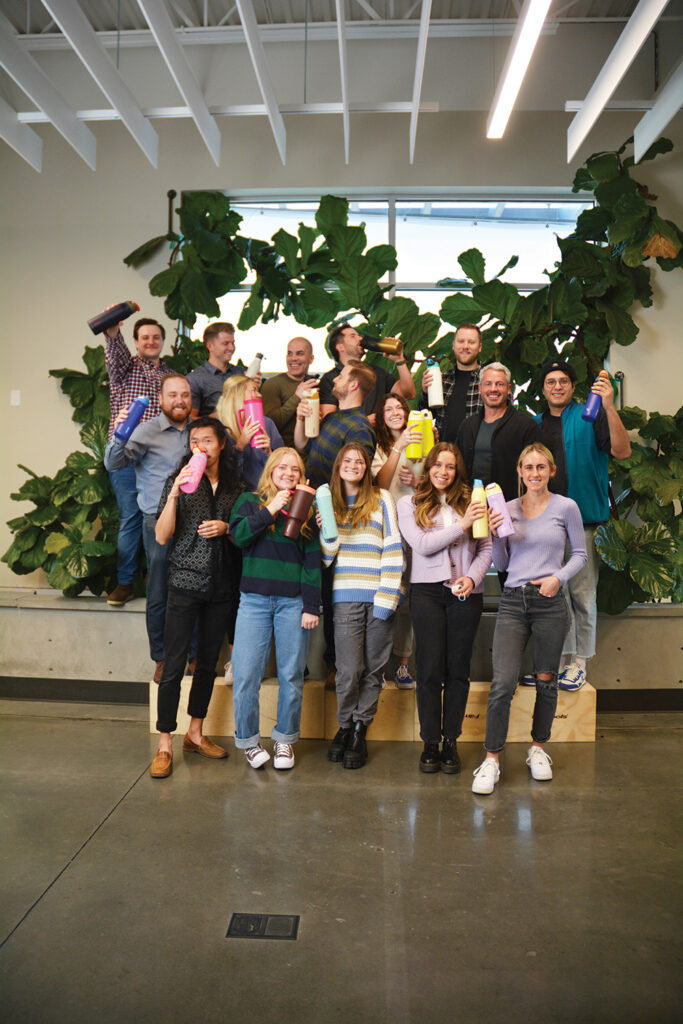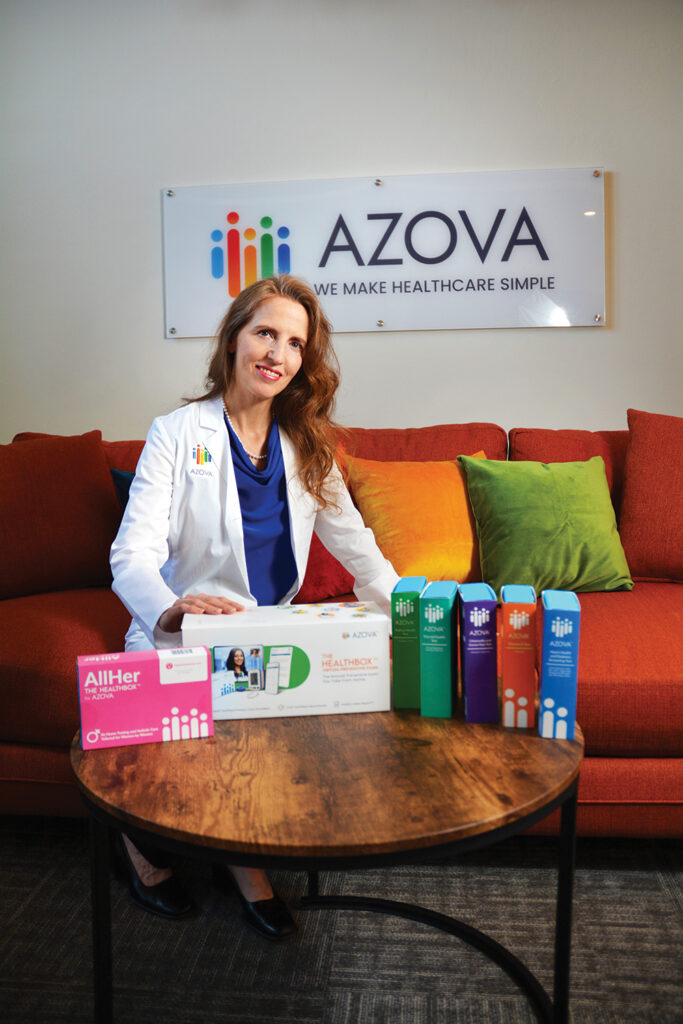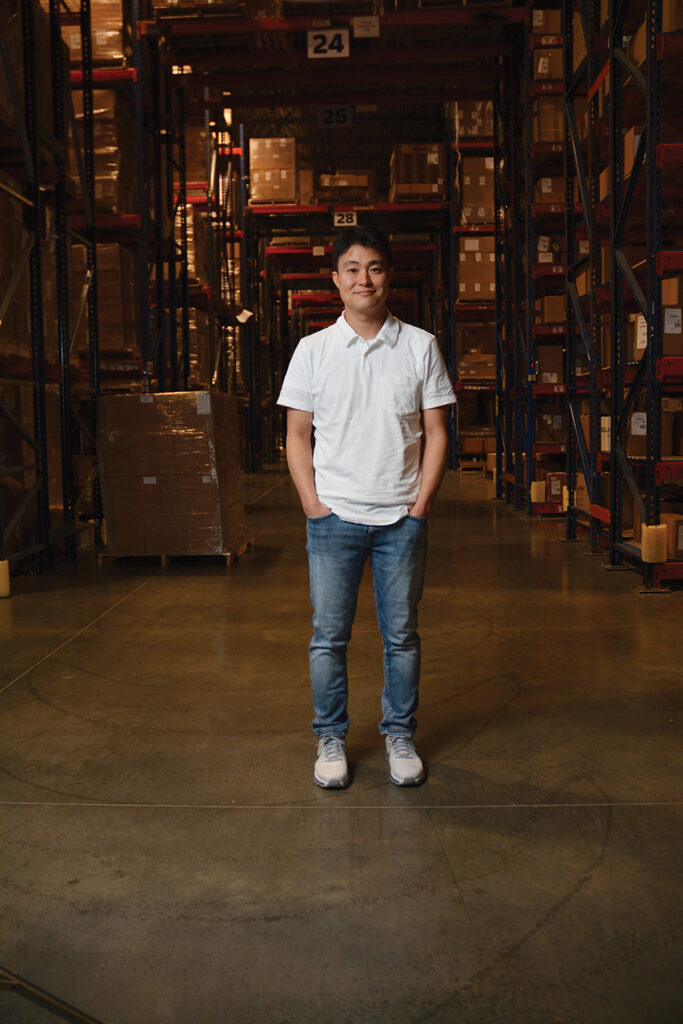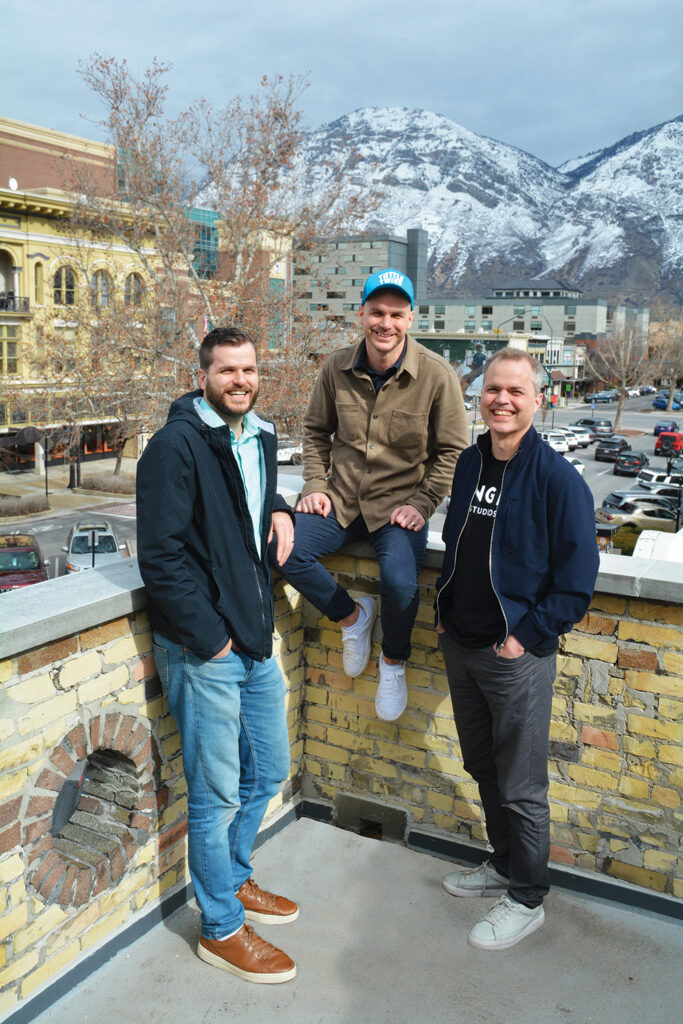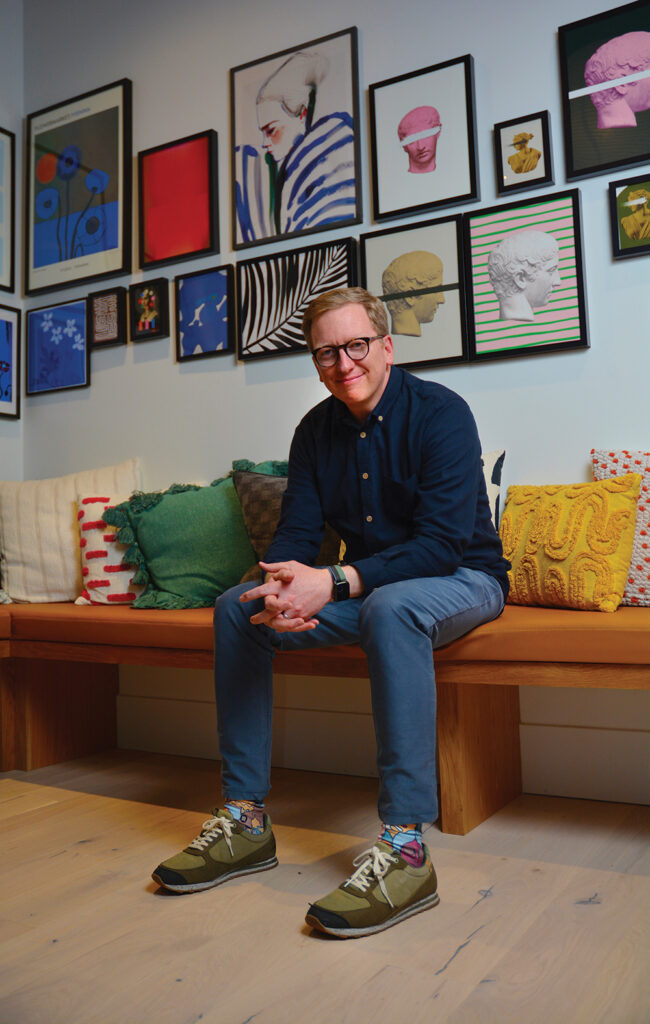
The office — it’s not about the square footage, but what happens inside.
Spanning across five states, 13 Kiln locations are in operation with five more set to be completed this year. The Provo location opened its doors early fall of 2023 — and, as a whole, Kiln hosts around 4,500 members and over 1,800 companies.
“We care about employee experience,” says Arian Lewis, CEO and co-founder. “We’re a forward-thinking company, focused on how we impact the community. With employers that base themselves at Kiln, the real investment they’re making has nothing to do with office space.”
Individuals can rent space to work remotely, corporations can host conference rooms for big-idea brainstorming, and VC groups can throw startup pitch competitions in the events theater. The relationships fostered inside are invaluable.
This is part of the reason that Kiln continues to flourish as many traditional office spaces post “for sale” signs.
FROM THE U.K. TO UTAH
As local as Kiln is, its story begins in the United Kingdom. As Arian Lewis shared in a Silicon Slopes podcast, he went to pursue an MBA in England, where he began studying co-working and flexible office. His studies gained wings when he began working for Barclays, where he built a co-working/fintech accelerator model.
The co-working and accelerator projects were quickly successful. These led to a global expansion with a new brand called “Rise” — boosting startup ecosystems from New York to Tel Aviv. Arian was connected with Leigh Radford, who would become the creative director and co-founder of Kiln.
Discovering a passion for co-working, Arian left Barclays to nurture the concept of Kiln. With capital raised, Arian called Leigh, and Kiln’s first location entered the Salt Lake scene in 2018.
DESIGNED WITH HUMANS IN MIND
Step through the doors of any Kiln, and intention pervades every detail. But Provo, specifically, has something special going on.
“Provo is the first built-from-scratch location of Kiln, and one of the very few in the entire world that is designed from the ground up as a co-working space,” Arian says.
From the plethora of windows encouraging natural circadian rhythm, to the deep focus rooms, the name of the Kiln game is “optimal.” That claim stands for Kiln membership costs as well.
“Kiln is extremely competitive on cost,” Arian says. “This location can compete with costs down to $18 per square foot. We really understand what I call the ‘utility function of square footage’ — with square footage, having more does not always open up more choices.”
In comparison, as Kiln notes, “renting office space in Provo can range anywhere from $19.50 – $22.50 per square foot.”
“At Kiln, our objective is to give companies a significant number of choices for what they can accomplish with their square footage,” Arian says. “Here, they have flexibility. What companies can offer to their employees is far superior to traditional office space.”
Kiln understands that people are more than employees, with a need for connection, movement and time to decompress. With this approach, productivity is elevated. Amber Linebaugh, Kiln Provo’s community director, can attest.
“I’ve been told by several members who formerly worked from home that they are much more productive and fulfilled when they work here,” Amber says. “They love engaging with other people beyond co-workers on Zoom. It gives them a better sense of purpose to get dressed, leave the house and designate time to focus on their work.”
With membership options from Basecamp to Private, teams and individuals also have access to podcast rooms, walking/bike desks, a fully-stocked kitchen, showers, a gym, relaxation rooms and amenities galore.
These members are happy campers and happy workers.
STYLE AND SQUARE FOOTAGE
Each aspect of Kiln changes an average workday into a co-working community, so work and relationships are elevated. Arian shares that this is what the younger working generation is looking for, “placing a significant premium on experience.”
“If you gave a millennial, the option between staying in a JW Marriott, or an A-frame cabin where they’d have to light the fireplace themselves, they’d stay in the A-frame,” Arian says. “The experience is more memorable, authentic, artistic and creative.”
Likewise, work is not just about the desks. In fact, Arian says, at Kiln less than 60 percent of members’ time is spent at their desks.
“There’s lots of getting up and walking here. That blood flow is really important,” Arian says.
But the benefits don’t stop there.
Sixty percent of members say that within the last 12 months, they have built a significant business relationship — thanks to their time at Kiln where they’re surrounded by business people from all kinds of industries.
In the valley of Silicon Slopes, what could be more valuable?
The environment of work is shifting, and in Utah Valley, Kiln is at that helm.

